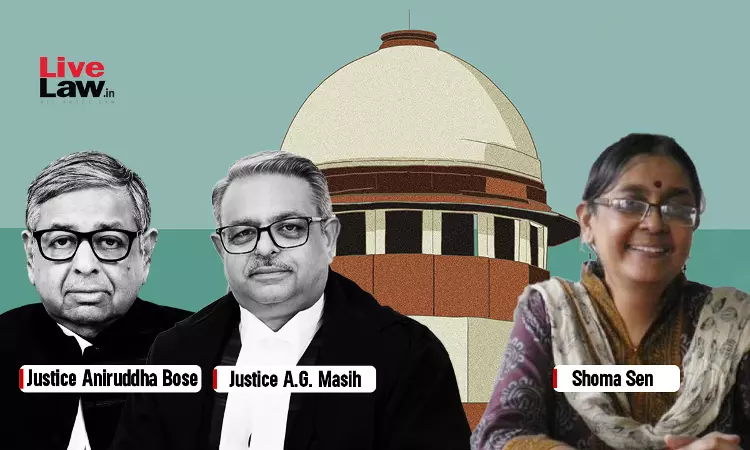No Ground To Believe Accusations Against Shoma Sen Are Prima Facie True : Supreme Court In Bhima Koregaon Case
Gyanvi Khanna
5 April 2024 9:49 PM IST

The Court observed that the materials collected by the NIA only reveal her attempt to encourage women to join the struggle for a "new democratic revolution" and showed no attempt to commit any "terrorist act".
Next Story


